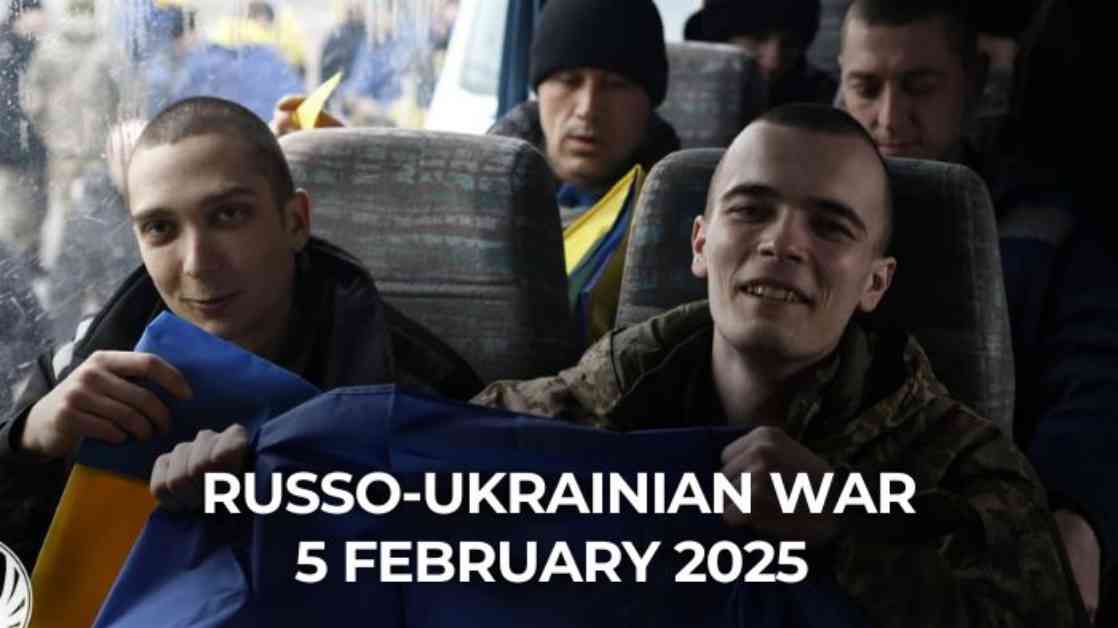The conflict between Russia and Ukraine has reached a critical point on day 1078, with the European Union proposing the establishment of a special tribunal to investigate Russian war crimes. This development comes as both Ukraine and Russia express willingness to engage in talks, potentially signaling a shift towards diplomatic resolution. Amidst these discussions, a series of events have unfolded that shed light on the ongoing military, intelligence, and humanitarian aspects of the conflict.
Ukrainian Strategic Strikes Target Russian Oil Sites
In a bold move, Ukraine’s drone strikes have successfully crippled 25 Russian oil sites in January alone, significantly impacting Russia’s war revenues. The systematic deep strikes on Russia’s largest oil facilities have exposed the vulnerabilities of the energy giant, as its air defenses struggle to protect vital economic assets. One notable incident involved a Ukrainian mystery drone penetrating Russian air defenses to strike an oil depot 250 km from the frontlines in the Kanivsky district. This targeted approach highlights Ukraine’s strategic capabilities and the challenges faced by Russia in defending its infrastructure.
The latest data on losses suffered by the Russian Armed Forces since the beginning of the invasion underscore the toll of the conflict. With over 800,000 personnel casualties and significant losses in tanks, artillery systems, aircraft, and other military equipment, the numbers paint a grim picture of the escalating violence. These statistics serve as a stark reminder of the human cost and destruction caused by the prolonged conflict.
International Response and Political Dynamics
Amidst the military engagements, the international community is grappling with the implications of the conflict on various fronts. Export controls are being reevaluated to prevent the flow of weapons technology to conflict zones, with concerns raised about the use of Western electronics in weapons deployed by Russia, Iran, and North Korea. Additionally, Finnish Foreign Minister’s remarks on the cracks in Russia’s economy and the call for strengthening economic sanctions reflect the growing pressure on Russia from its global counterparts.
In the realm of politics and legal developments, the EU’s push for a special tribunal to address Russian war crimes signals a commitment to accountability and justice. The EU’s top diplomat emphasizing that unpunished crimes only encourage further aggression underscores the need for a robust response to violations of international law. Moreover, Ukrainian President Zelenskyy’s readiness to negotiate directly with Putin, coupled with Russia’s openness to talks, hints at a potential shift towards diplomatic engagement to resolve the conflict.
Humanitarian Impact and Social Consequences
The conflict’s toll on human lives and the societal fabric of Ukraine is evident in the recent incidents of Russian attacks on Ukrainian military recruitment centers. The use of young Ukrainian men as disposable agents in sabotage plots highlights the ruthless tactics employed by Russian forces. The return of 150 Ukrainian defenders from Russian captivity, some held for over two years, underscores the human cost of the conflict and the emotional weight carried by those directly impacted.
As the conflict continues to unfold, it is essential to recognize the multifaceted dimensions of the crisis and the urgent need for a comprehensive approach towards resolution. From military engagements and intelligence strategies to humanitarian considerations and political dynamics, each aspect of the conflict plays a crucial role in shaping the future trajectory of the region. As the international community grapples with the complexities of the Russo-Ukrainian war, the path towards peace remains fraught with challenges and uncertainties.

















